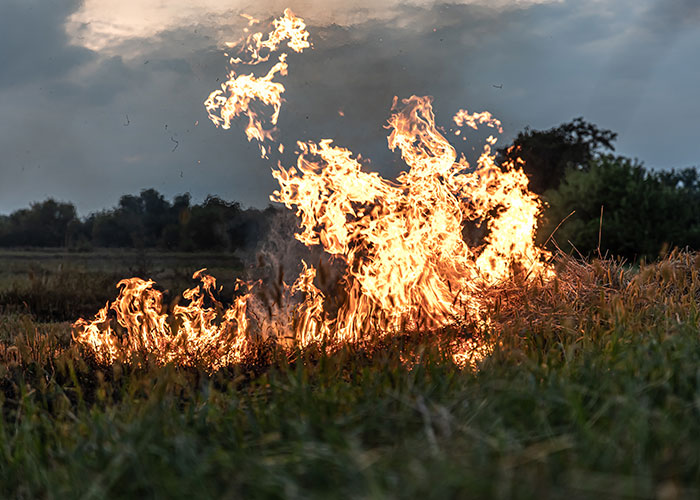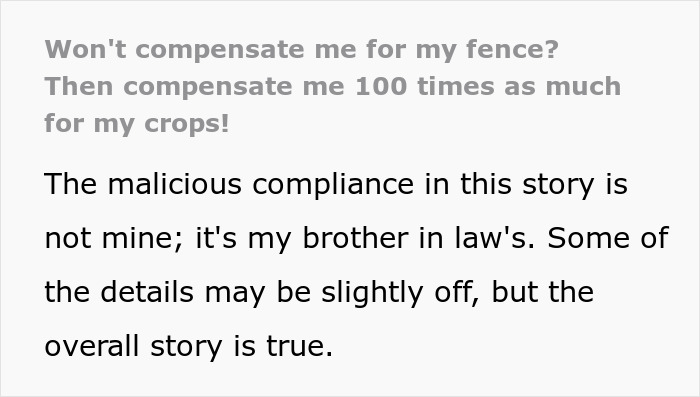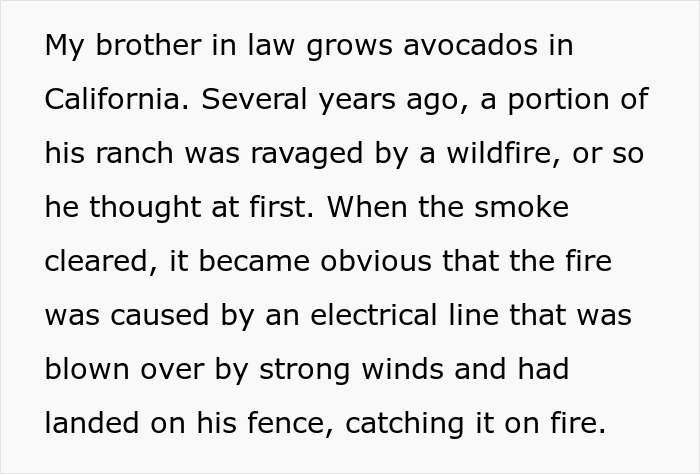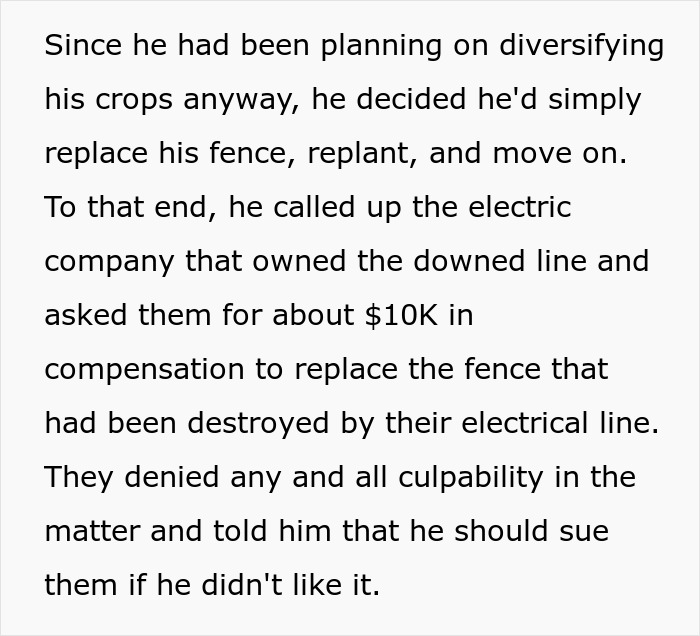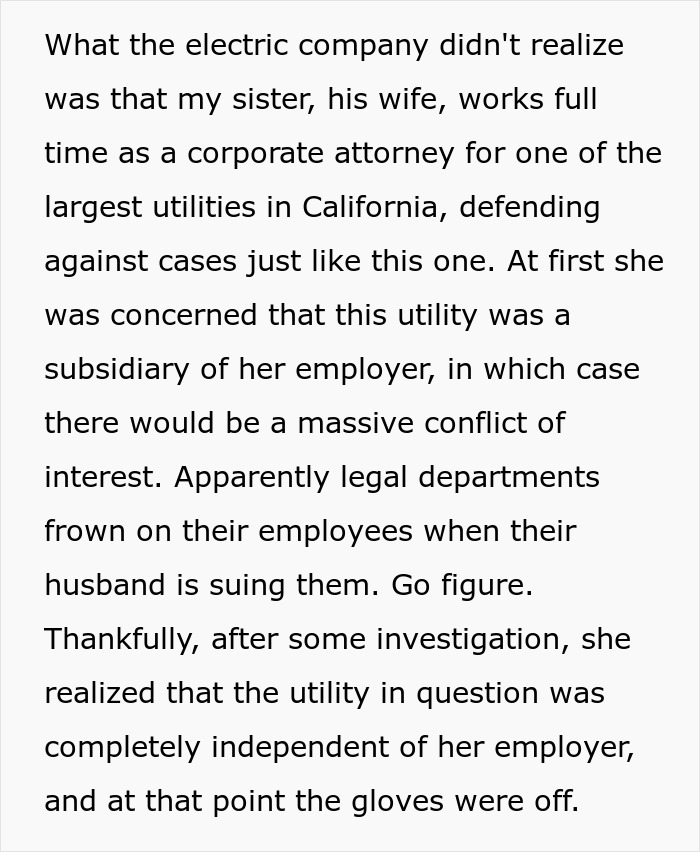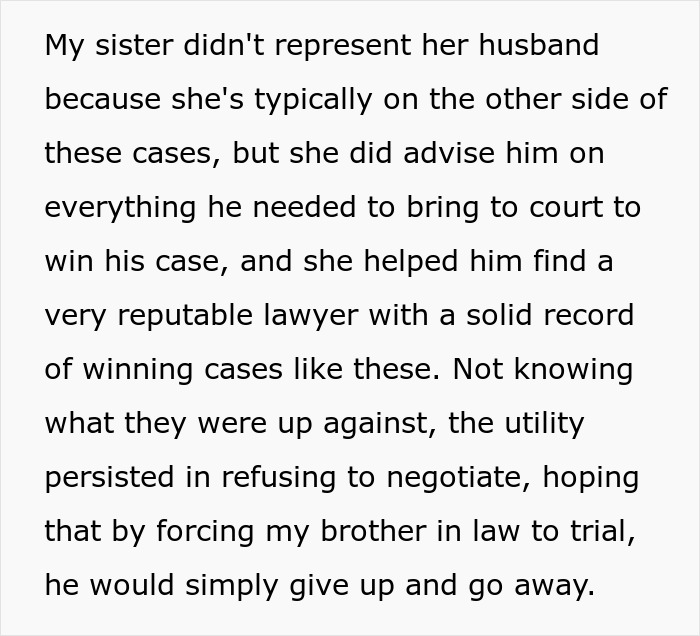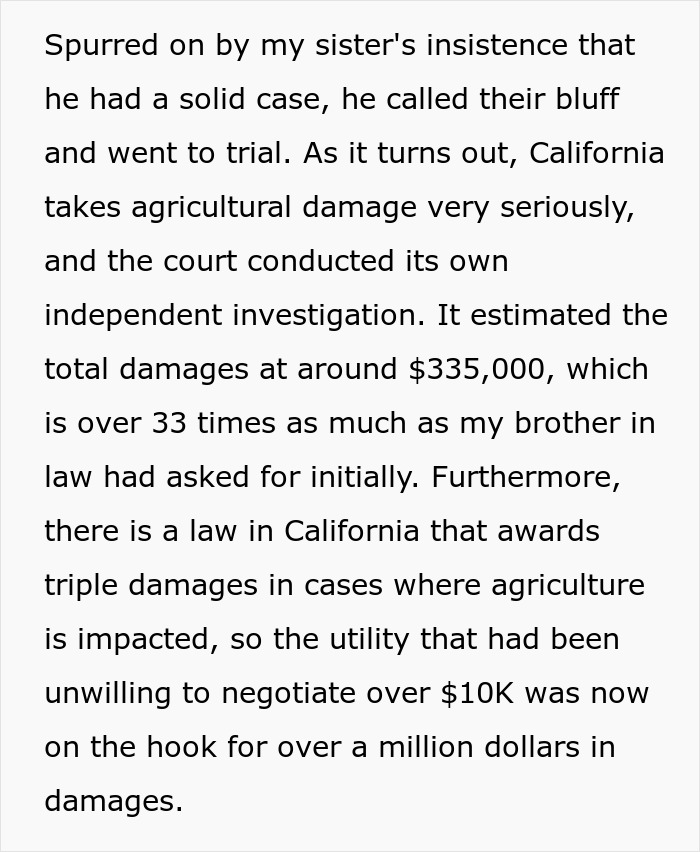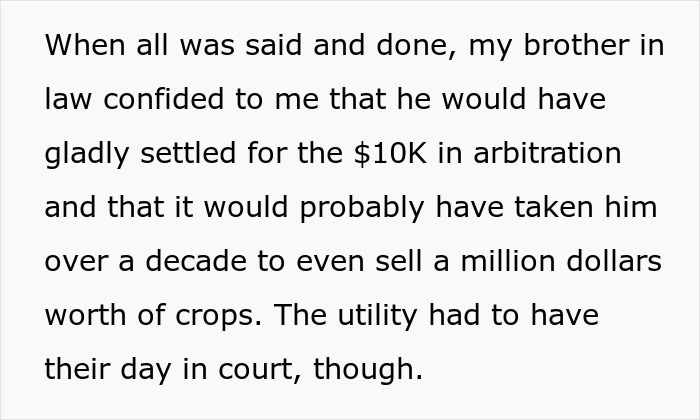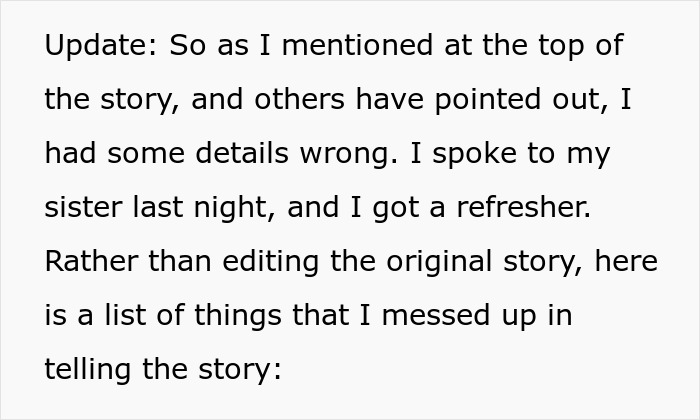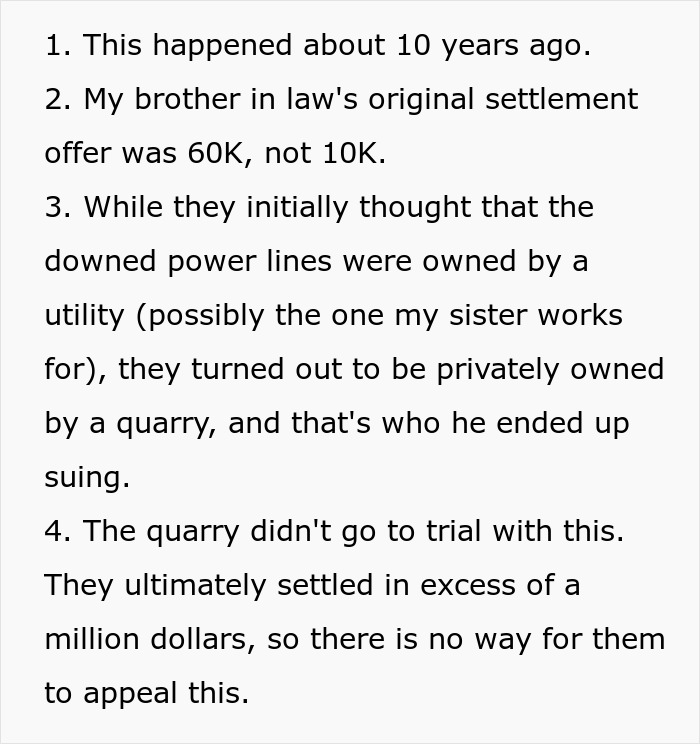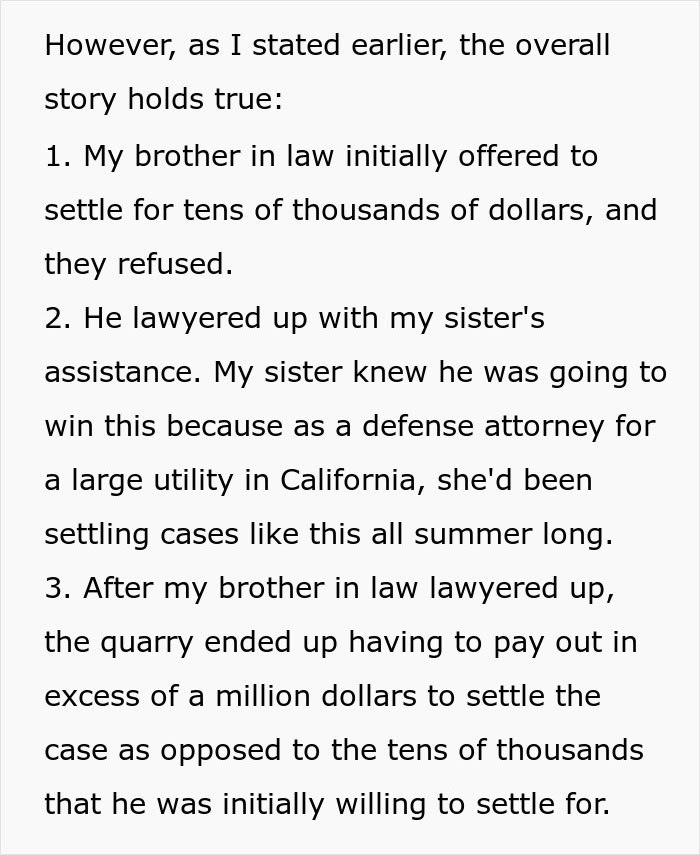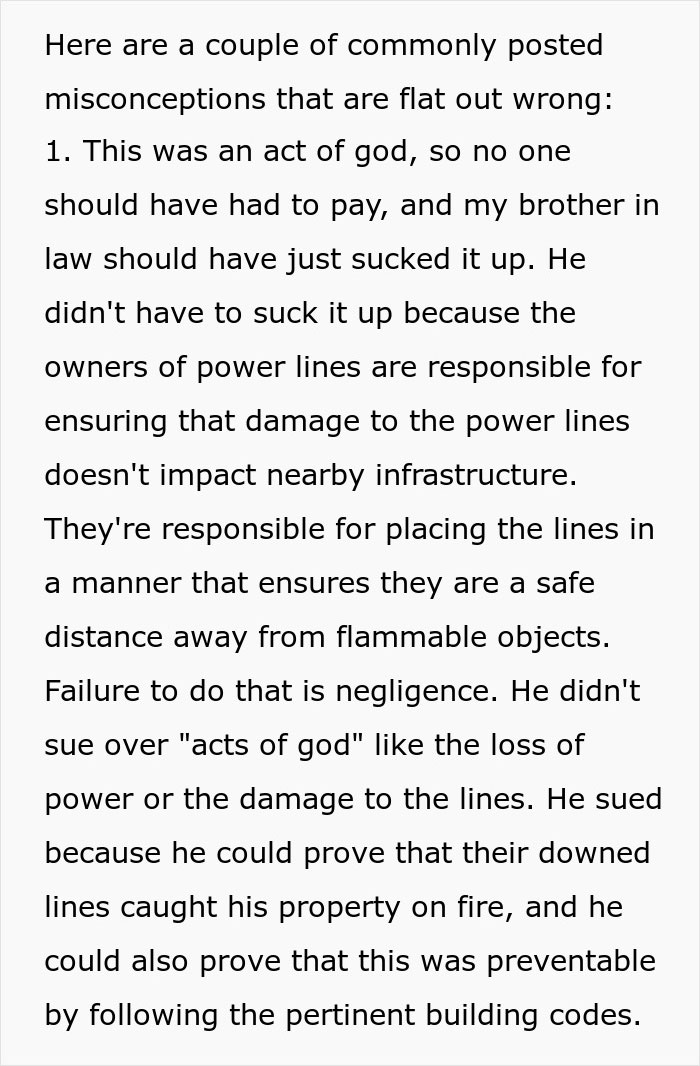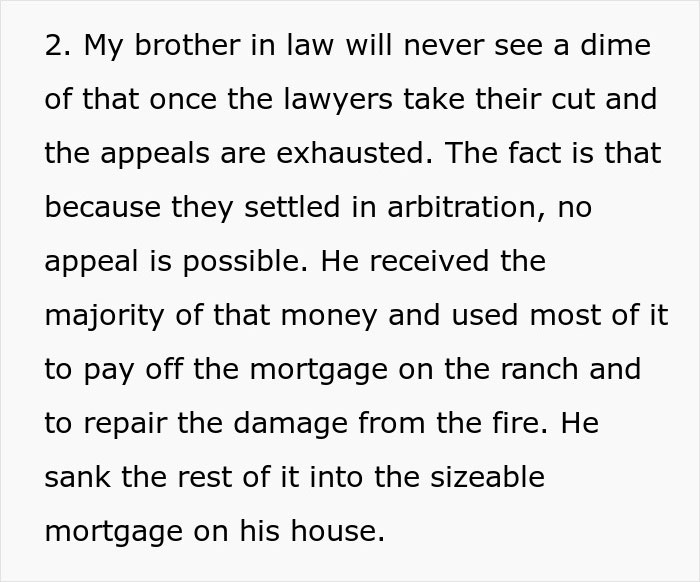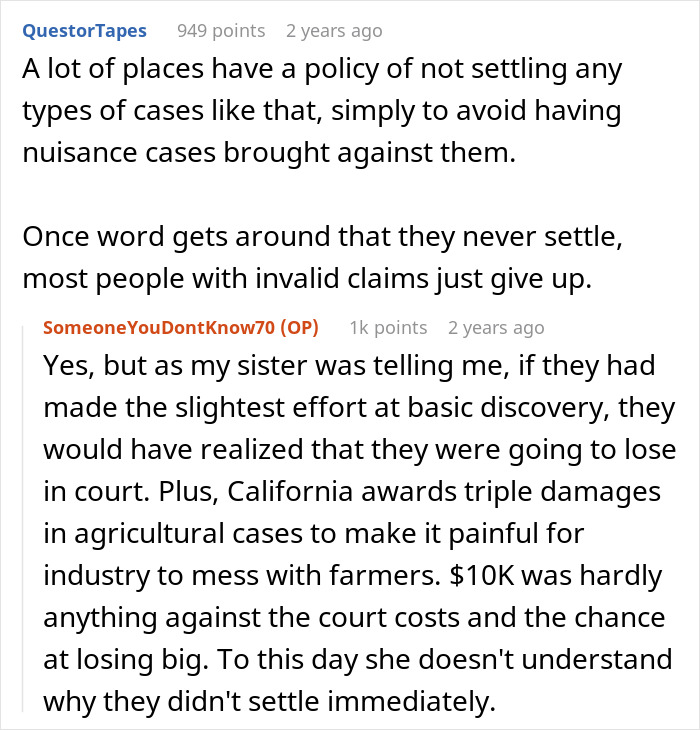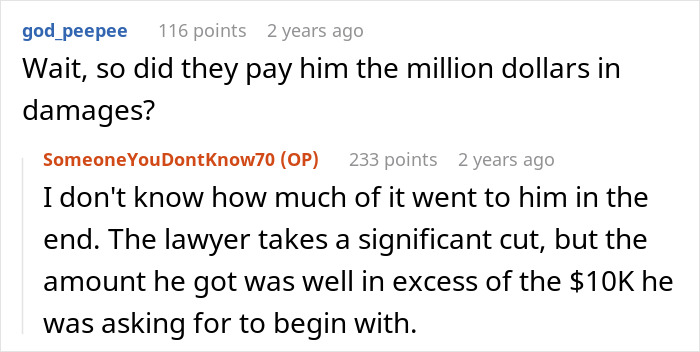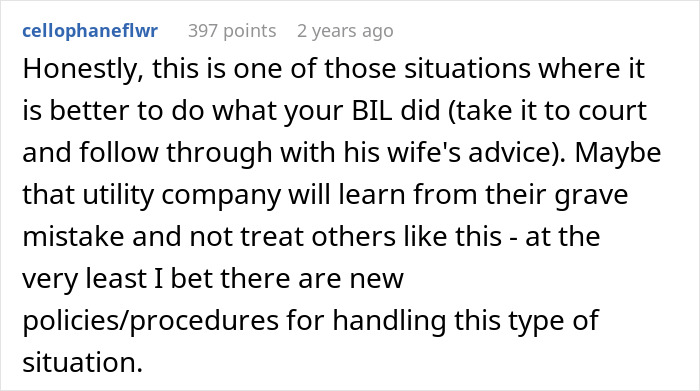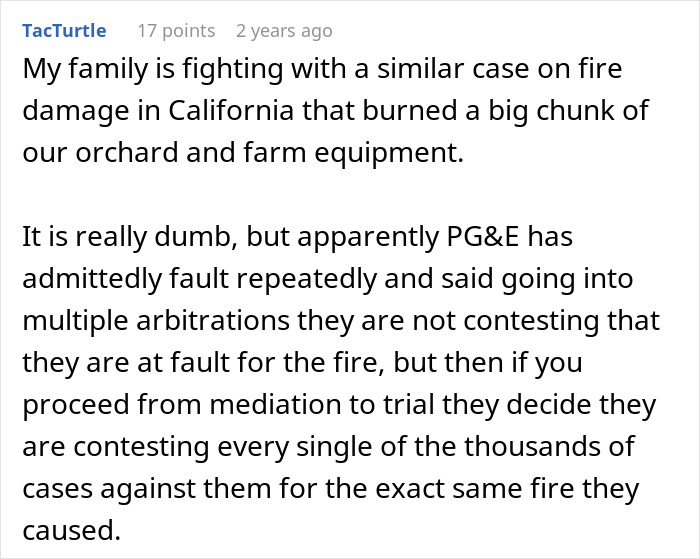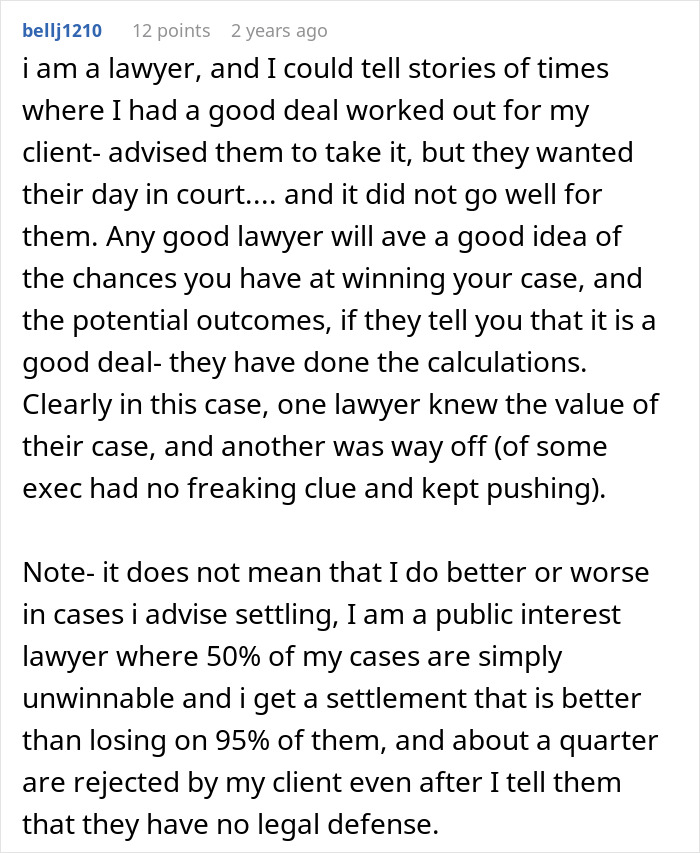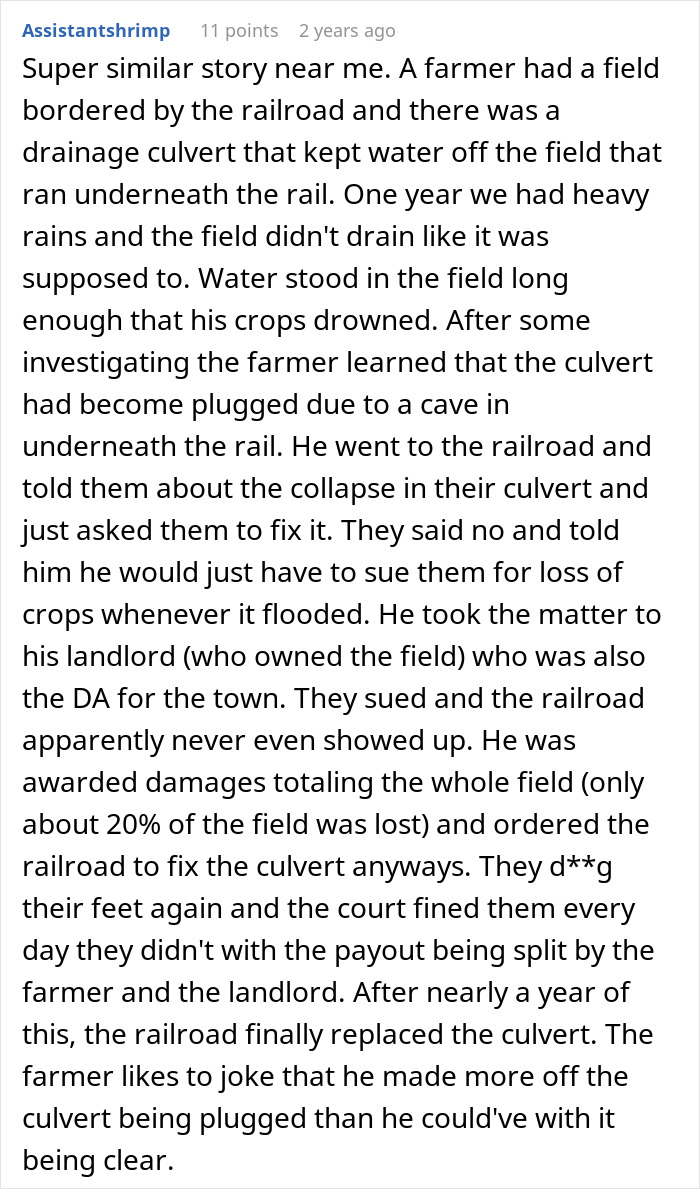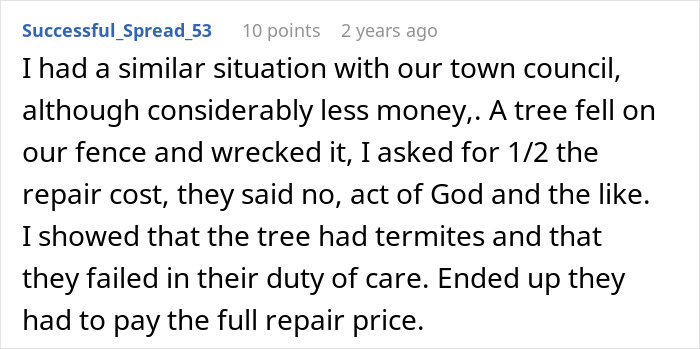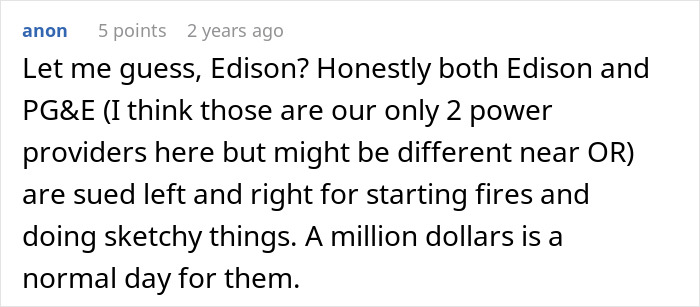A netizen shared a story of a farmer who had a lot of their crops damaged in a fire caused by an electrical company. When he asked for compensation for damage to his fence, they said no. So he lawyered up and took them to court for quite a bit more. We reached out to the person who shared the story via private message and will update the article when they get back to us.
Normally, if your business damages someone else’s property, you need to pay for it
Share icon Image credits: puhimec / envato (not the actual photo)
But one farmer had to go to court after an electrical company started a fire
Share icon Image credits: AnnaStills / envato (not the actual photo)
The person shared a few updates later
Share icon Share icon Share icon Image source: SomeoneYouDontKnow70
California is one of the nation’s leading producers of food
Share icon Image credits: Monika Baumgartner / pexels (not the actual photo) While most people think of California as a tech and entertainment hub, the truth is that roughly half of the fruits and vegetables grown in the US come from it. This is even more pronounced when it comes to the production of almonds, pistachios, pomegranates, and walnuts, roughly 99% of which come directly from California. It’s also a national leader in lima beans, lemons, kumquats, raspberries, strawberries, and spinach, so it’s not surprising that you basically can’t get a good smoothie bowl without California. This is all to say that the state takes its agriculture very, very seriously. Incidentally, it’s not just vegan products, California also produces about a fifth of the milk in the US, as well as being the nation’s second largest cheesemaker. How does California do it? Well, climate is a big part, it’s a famously sunny state, which is good for more than nice beach holidays. Things grow well in California and the state has a large population. On the surface, this might seem like a bad thing, as urban development would reduce the amount of farmland around. Conversely, this also means a large amount of people nearby to purchase your products and work in your farms. However, as this story mentions, California has a number of significant pro-agriculture laws. Given the sheer number of people in the state as well as the desirability of living there, one can easily imagine developers buying up every piece of land they can find and turning it into houses and apartments.
The state works hard to keep land available for agriculture
Share icon Image credits: cottonbro studio / pexels (not the actual photo) In 1965, the state passed the Williamson Act which, in short, allowed local governments to enter into contracts with landowners. These contracts would limit people’s ability to build homes on this land, although the act did not outright ban construction. Instead, homes built on this land have to be “consistent with agricultural use,” which limits most developers’ interest in the land. While some might want to sell their property at a profit, given the value of land there, entering into a contract like this would keep its value stable, which would also mean that property taxes remain very manageable. Currently, over sixteen million acres of farmland in California are protected under this act. That is about 64749 square kilometers, which, incidentally, is about the same size as Lithuania (65,286 square kilometers.) This is roughly half of all agricultural land in the state. The Williamson Act, combined with other protections all are pretty clear indications that companies in California should think twice before messing with farmers. This is the real appeal of this story, as the electrical company no doubt was used to an “average” person not wanting to deal with the costs of a lawsuit. While this is technically correct, it’s important to remember that an unwillingness to go to court doesn’t mean that the victim of this company is by any means in the wrong. The farmer’s “malicious compliance” is hardly malicious, as they have every right to pursue a case. Indeed, the electrical companies legal team should have realized the risks involved with a fire ruining produce, as California laws are pretty aggressive about this sort of thing.
Some readers wanted more details
But most thought it was an excellent bit of malicious compliance
Anyone can write on Bored Panda. Start writing! Follow Bored Panda on Google News! Follow us on Flipboard.com/@boredpanda!
